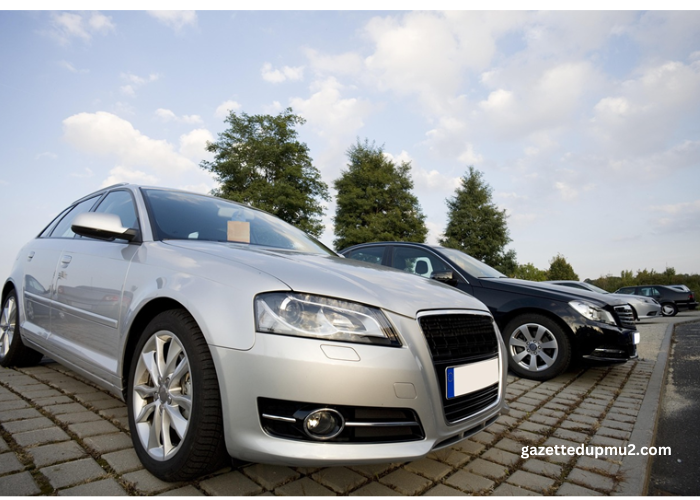When it comes to buying a car, two things usually matter most: reliability and price. Reliable cars are known for lasting a long time and performing well, while budget-friendly cars are great for saving money. But how do you figure out which one is right for you?
In this comparison, we’ll break down the pros and cons of both reliable vehicles and budget-friendly ones to help you make the best choice based on your needs and budget. Let’s dive in!
Understanding Reliable Vehicles
Reliable vehicles are known for a few key benefits: low maintenance costs, good resale value, and strong performance over time. Brands like Toyota and Honda are often seen as top choices for reliability.
Many of their models last well beyond 200,000 miles with proper care. One major advantage of picking a reliable vehicle is peace of mind.
Knowing your car is less likely to break down can help reduce stress and lead to greater satisfaction. Plus, the upfront cost of a reliable car often pays off over time with lower repair costs and fewer surprises.
The Appeal of Budget-Friendly Options
Budget-friendly vehicles are built to be affordable. These cars usually have lower upfront costs, making them a great choice for first-time buyers or people on a tight budget.
Brands like Kia and Nissan offer models that provide solid performance and good fuel efficiency without costing too much. For many buyers, the main appeal of budget-friendly cars is their ability to get you where you need to go without costing too much.
They might not last as long as more reliable cars. But, many newer models come with the latest tech and features, making them competitive with pricier options.
Pros and Cons: A Closer Look
When comparing reliable vehicles to budget-friendly ones, it’s important to think about the pros and cons of each. Here are the pros and cons of reliable car vehicles vs budget-friendly options:
Pros of Reliable Vehicles
Reliable vehicles are a good investment because they last longer if you take care of them. They usually cost less to maintain since they need fewer repairs, which can save you money in the long run.
On top of that, reliable cars often keep their value better than budget options, so you may get more money when you sell or trade them. This makes them a smarter choice if you’re looking for a vehicle that offers lasting value.
Cons of Reliable Vehicles
Reliable vehicles often have higher upfront costs, which can be a challenge for buyers on a budget. This higher price is usually due to the quality and durability of the car.
But, the market for reliable cars can be more crowded, meaning there are fewer choices at lower price points. This can make it harder to find the perfect car if you’re looking for something affordable but still dependable.
Pros of Budget-Friendly Options
Budget-friendly vehicles are more affordable with a lower initial purchase price, making them accessible to more buyers. Many of these cars also come with modern features, including the latest technology and designs.
This makes them a good choice for people who want a new car without spending too much. You can enjoy up-to-date features while sticking to a budget.
Cons of Budget-Friendly Options
Budget-friendly vehicles may need more repairs over time, which can lead to higher costs in the long run. They also tend to lose value faster than more reliable cars, meaning you might get less when you sell or trade them in.
This can make them more expensive in the end, even though they’re cheaper at first. The lower resale value and potential reliability issues are important to consider.
Factors to Consider When Choosing a Vehicle
When deciding between reliable vehicles and budget-friendly options, it’s essential to weigh key factors.
Your Driving Habits
Knowing how often and why you drive is important when choosing a car. If you drive long distances every day, a reliable vehicle might be worth the extra cost, offering better comfort and dependability.
For instance, the Hyundai Kona EV provides a dependable and efficient electric option for those who commute long distances. For those who don’t drive much or only need a car for short trips, a budget-friendly vehicle could be a good fit, especially in cities where parking is tight. The key is to match your vehicle choice with how you use it most.
Long-term Financial Goals
Your long-term financial goals can greatly impact your car decision. If you plan to keep your car for many years, investing in a reliable vehicle that holds its value is a smarter choice.
This way, you’ll get more money back when you sell or trade it in later. But, if you’re likely to change cars often or have a more flexible financial situation, a budget-friendly car can help you stay within your budget.
Personal Needs and Preferences
Everyone has different needs when it comes to cars. Families may need more space and safety features, making reliable SUVs or sedans a better choice.
On the other hand, single drivers or young professionals might prefer smaller, sportier cars, often found in the budget category, that are easier to park and maneuver. It’s important to choose a car that suits your lifestyle and personal tastes.
Making a Choice: A Balanced Approach
Finding the right vehicle involves understanding the trade-offs between reliability and affordability. Some potential buyers engage in a mixed approach by seeking out reliable vehicles that also maintain a lower price point.
One way to achieve this balance is by considering certified pre-owned (CPO) vehicles. These cars undergo rigorous inspections and come with extended warranties, combining the reliability of trusted brands with significantly reduced costs compared to brand-new models.
Ultimately, balancing your need for reliability and your budgetary constraints comes down to thorough research. Assess consumer reviews, reliability ratings, and long-term ownership costs before making a purchase.
Finding Your Perfect Fit
When choosing between budget-friendly or reliable vehicles, it’s important to think about what fits your lifestyle and budget. Balancing reliability with cost will help you be more satisfied with your car. Both options have their own pros and cons that can affect your driving experience for years.
Take the time to explore different models, test drive when you can, and think about how your choice will impact you in the long run. Find a car that meets your needs and fits your financial plans.
Is this article helpful? Keep reading our blog for more.





